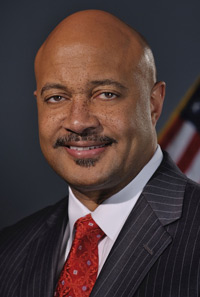Indiana Attorney General Curtis Hill announced on Wednesday that he, along with the other 49 states and the District of Columbia, has reached an agreement with California-based ride-sharing company Uber Technologies Inc. to address the company’s one-year delay in reporting a data breach to its affected drivers.
Uber learned in November 2016 that hackers had gained access to some personal information that Uber maintains about its drivers, including drivers’ license information pertaining to approximately 600,000 drivers nationwide. Uber tracked down the hackers and obtained assurances that the hackers deleted the information. However, even though some of that information – namely drivers’ license numbers for Uber drivers – triggered Indiana law requiring them to notify affected Indiana residents, Uber failed to report the breach in a timely manner, waiting until November 2017 to report it.

Hill
“Among our very top priorities is the protection of Hoosier consumers against companies that cause them harm through improper actions – or omissions, as the case may be,” Hill said. “We make it our standard practice to pursue all penalties and remedies available under the law on behalf of our citizens, and we are pleased to have achieved a reasonable settlement in this case involving Uber.”
As part of the nationwide settlement, Uber has agreed to pay $148 million to the states. Indiana will receive $1,495,450. Of Indiana’s share, $752,400 will be distributed to drivers affected by the breach. In addition, Uber has agreed to strengthen its corporate governance and data security practices to help prevent a similar occurrence in the future.
Indiana will provide each Uber driver impacted in the state with a $100 payment. Eligible drivers are those drivers whose driver’s license numbers were accessed during the 2016 breach. Some of those drivers may not still be driving for Uber today. A settlement administrator will be appointed to provide notice and payment to eligible drivers. Details of that process will be announced by this office after the effective date of the settlement.
The settlement between Indiana and Uber requires the company to:
- Comply with Indiana data breach and consumer protection law regarding protecting Indiana residents’ personal information and notifying them in the event of a data breach concerning their personal information;
- Take precautions to protect any user data Uber stores on third-party platforms outside of Uber;
- Use strong password policies for its employees to gain access to the Uber network;
- Develop and implement a strong overall data security policy for all data that Uber collects about its users, including assessing potential risks to the security of the data and implementing any additional security measures beyond what Uber is doing to protect the data;
- Hire an outside qualified party to assess Uber’s data security efforts on a regular basis and draft a report with any recommended security improvements. Uber will implement any such security improvement recommendations; and
- Develop and implement a corporate integrity program to ensure that Uber employees can bring any ethics concerns they have about any other Uber employees to the company, and that it will be heard.
All 50 states and the District of Columbia are participating in this multistate agreement with Uber.
